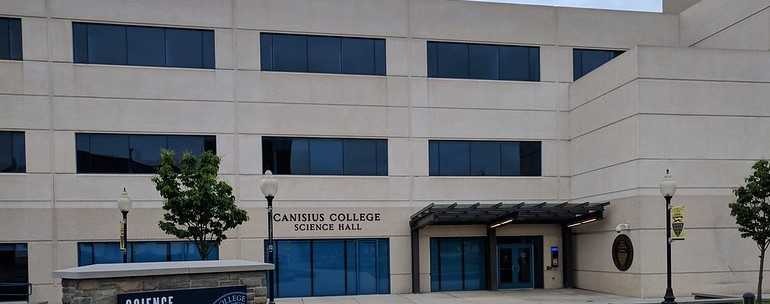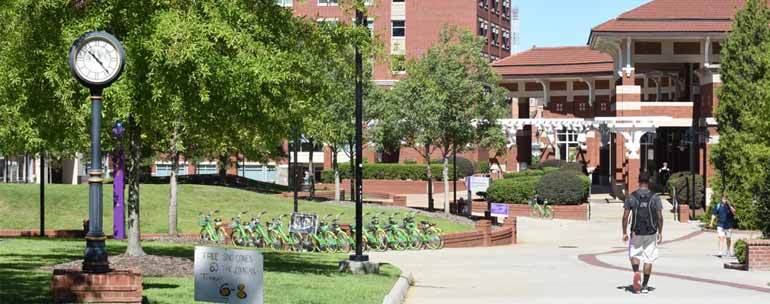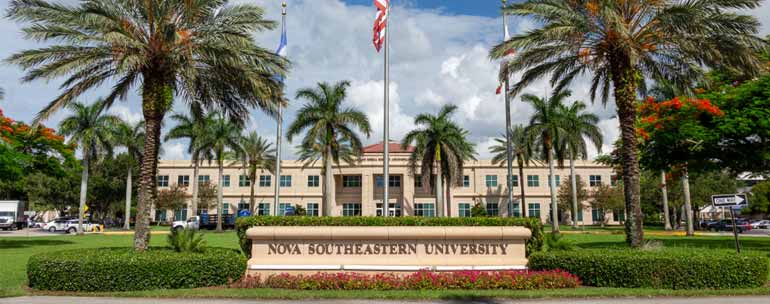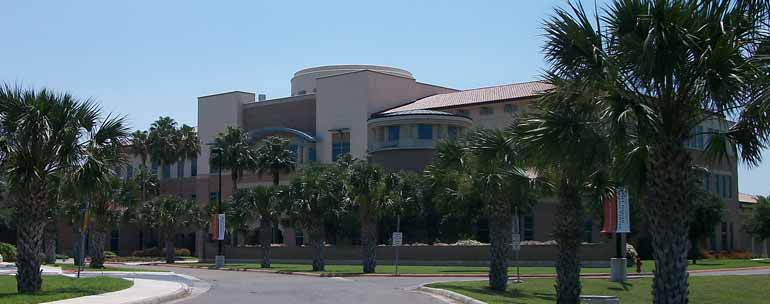You might consider getting a masters in reading and literacy if you have a passion for reading and want to help others improve their own reading skills.

This area of study can help you become a leader in the field of reading education. Reading specialists work to improve literacy rates around the world, and they may work with both teachers and students.
Editorial Listing ShortCode:
Read on to learn more about what a graduate program in reading and literacy entails.
Online Masters in Reading and Literacy Programs

If you’re looking to improve your professional qualifications in education, you might consider pursuing an online masters in reading and literacy program. There are two main types of programs: a masters in reading education and a masters in literacy education.
Select the program that most interests you to jump to that section of the guide:
Both types of reading specialist online programs offer courses that focus on improving reading and writing skills, but they differ in their approach.
Online Masters in Reading Education

This graduate degree can help prepare you for a career in reading education. Common subjects covered in an online masters program in reading education include reading research, reading assessment and instruction, literacy development, and reading intervention.
You can also learn about working with struggling readers and English language learners. During an online master’s degree in reading education program, you can develop the skills and knowledge to help students improve their reading skills and continue on in school.
Editorial Listing ShortCode:
Education professionals with this degree tend to work in school settings as reading specialists, reading coaches, or reading interventionists. Some graduates may go on to become literacy coordinators or supervisors. These professionals are responsible for helping students improve their reading skills.
In addition to working in school settings, someone with a background in reading education may find work in public libraries or as a reading tutor.
Online Masters in Literacy Education

An online masters in literacy education is designed for educators who want to specialize in teaching literacy skills, including reading, writing, and other communication skills.
It focuses on the latest research and best practices in literacy instruction, and you can learn how to improve your teaching of literacy skills to students of all ages. As a result, you could become better prepared you for careers in both education-related and literacy-related fields.
Editorial Listing ShortCode:
Typical coursework for this type of program covers a wide range of topics, including reading acquisition and development, reading theory, assessment and instruction, and technology in the classroom. In addition, you may have the opportunity to specialize in a particular area of interest, such as early childhood literacy or adolescent literacy.
Your program could also have a practicum component, which would give you the opportunity to put your knowledge into practice under the supervision of a licensed teacher. Upon completion of the program, graduates may be well prepared to teach in a variety of settings, from early childhood education to adult literacy programs.
Reading and Literacy Careers & Salaries

There are many career paths that reading and literacy professionals can pursue. Some graduates create and assess curricula, while others teach students or other classroom instructors directly. According to the Bureau of Labor Statistics, the following positions can benefit from advanced study of reading and literacy education.
| Careers | Annual Median Salaries |
| K-12 Principals | $98,420 |
| Instructional Coordinators | $63,740 |
| High School Teachers | $61,820 |
| Elementary School Teachers | $61,400 |
| Middle School Teachers | $61,320 |
| Librarians and Library Media Specialists | $61,190 |
| Kindergarten Teachers | $60,900 |
| Adult Basic and Secondary Education and ESL Teachers | $59,720 |
| Tutors | $36,470 |
| Preschool Teachers | $30,210 |
Many masters in reading and literacy programs are designed for educators who already hold a teaching license. If you want to be a teacher but do not have a teaching license, it’s strategic to search for a masters program that offers a licensure track.
Master in Reading and Literacy Curriculum

A master’s in reading and literacy curriculum can provide educators with essential tools to help their students improve their reading skills. Here are examples of courses you might take in this type of graduate program:
- Introduction to Literacy Education: This course provides an overview of the field of literacy education, including its history and current approaches.
- Reading Development and Instruction: This course covers the stages of reading development and explores effective instructional strategies for teaching reading.
- Assessment in Reading Education: This course covers various assessment methods and tools that can be used to evaluate reading progress.
- Instructional Technology for Reading: This course introduces various technology tools that can be used to support reading instruction, such as digital books and software programs.
- Literacy in the Content Areas: This course explores ways to incorporate reading instruction into other subject areas, such as science and social studies.
- Special Populations in Literacy Education: This course covers special considerations for teaching literacy to diverse groups of students, including English language learners and students with disabilities.
- Bilingualism and Literacy: This course covers issues related to bilingualism and literacy development, including bilingual education programs and second language acquisition.
- Theory and Research in Literacy Education: This course provides an overview of the major theories and research findings in the field of literacy education.
- Current Issues in Literacy Education: This course covers current issues and debates within the field of literacy education.
- Practicum in Literacy Education: This course provides you with hands-on experience working with readers in a classroom or other educational setting.
With a masters degree in reading and literacy, educators can become better prepared to help their students succeed in school and in life.
How to Choose an Online Masters in Education in Reading and Literacy Program

When considering an online Master of Education in Reading and Literacy, it’s beneficial to keep the following factors in mind:
- Accreditation. It’s beneficial to consider a school’s accreditation status. You can also see if the program is accredited by a reputable organization, such as the Council for the Accreditation of Educator Preparation (CAEP).
- Curriculum. It’s helpful to look at a program’s curriculum to see if it aligns with your career goals. Does the program offer courses that interest you? Are there opportunities to specialize in a particular area of literacy?
- Affordability. You may want to consider the costs of various programs and whether or not financial aid is available.
- Faculty credentials. You can check out the faculty to see if they are qualified to teach in an online setting and have experience working with students in reading and literacy.
- Lifestyle fit. It’s helpful to make sure that a program is flexible enough to be completed around your other commitments.
By taking these factors into consideration, you can better choose a literacy and reading masters degree program that’s right for you.
Admissions Requirements

Most schools that offer a master’s degree in reading and literacy have similar admissions requirements. Below are some of the most common requirements:
- Bachelor’s degree from an accredited institution
- Letters of recommendation
- Personal statement or essay
- GRE or GMAT scores (only some schools require them)
Many programs require that your undergraduate degree be in education or a related field, such as English, psychology, or sociology. Some programs also require you to have a teaching license. You can check with your prospective school to see what specific criteria they require for admission.
Online Reading Specialist Programs Accreditation

There are many reasons to seek out an accredited online reading specialist program. For one, regional accreditation is indicative of a high-quality education. Regional accreditation is a process of quality control that ensures colleges and universities meet certain standards.
Editorial Listing ShortCode:
In order to be regionally accredited, a school must undergo a rigorous review process. Employers often prefer to hire candidates who have graduated from accredited programs. This is because accredited programs have a reputation for producing qualified and competent graduates. In addition, some financial aid opportunities are only available to students who are enrolled in accredited schools.
Reading and Literacy Licensure and Certifications

Most schools require reading and literacy teachers or specialists to hold a teaching license. Licensure requirements vary by state, but most require the completion of at least a bachelors degree in education, the fulfillment of student teaching hours, and passing scores on state exams.
Many states also offer professional certifications in reading and literacy instruction, which can demonstrate a teacher’s specialized knowledge and skills in this area. There are also several industry organizations that offer certifications for reading and literacy professionals. These credentials can be helpful in obtaining a position in a school or district that specializes in reading and literacy instruction.
Financial Aid and Scholarships

If you’re interested in pursuing a masters degree in reading or literacy, there are several financial aid options you can explore.
Many students qualify for federal aid, which may help cover the cost of tuition and other expenses. Common forms of federal aid include student loans and work-study programs. To see if you qualify for need-based aid, you can submit the Free Application for Federal Student Aid (FAFSA).
State aid programs may also be available, and some employers offer tuition assistance programs for employees who want to further their education. Plus, there are a number of scholarship opportunities for students pursuing a masters in reading online or a masters degree in literacy.
Reading and Literacy Professional Organizations
Although it is certainly not required, being a part of a professional organization can be beneficial for those in the reading and literacy field.
Some of the most well-known organizations for reading and literacy professionals are listed below:
- International Dyslexia Association (IDA)
- International Literacy Association (ILA)
- National Council of Teachers of English (NCTE)
These organizations provide a way to network with other professionals, learn about new research, and stay up-to-date on best practices.
What Can You Do with an Online Master’s Degree in Reading and Literacy?

With an online master’s degree in reading and literacy, you can pursue a variety of different careers. Some graduates work as a literacy coaches, reading specialists, or instructional coordinators.
Reading specialists may instruct teachers on how to better teach reading and literacy to their students, or they may work with individual students themselves. Many teachers also pursue a masters in reading and literacy to hone their teaching craft and advance their qualifications. Teachers can specialize in teaching literacy skills to various age groups, including children, adolescents, and adults.
What Does a Reading Specialist Do?
Reading specialists are educators who specialize in teaching reading. They typically work with students who are struggling to read, either because they have a learning disability or because they are English language learners.
Editorial Listing ShortCode:
Reading specialists use a variety of techniques to help students improve their reading skills, including one-on-one tutoring, small group instruction, and whole class instruction. Some reading specialists act as coaches for other teachers, sharing best practices and methods for teaching reading and literacy. They may also review new curricula for a school.
How Much Do Reading Specialists Make?

How much reading specialists make may depend on their career path. Some reading specialists work as teachers, while others may work as librarians, instructional coordinators, or educational consultants.
According to the Bureau of Labor Statistics, the median salary for elementary school teachers is $61,400, with most making between $43,950 and $99,420 each year. Meanwhile, instructional coordinators earn a median annual salary of $63,740, with most making between $38,390 and $101,090 (Bureau of Labor Statistics).
As you can see, there is a wide range of salaries for reading specialists. Earnings can also vary based on a number of factors, such as your type of position, your experience level, and your geographic location.
How Long Does It Take to Get an Online Masters Degree in Reading and Literacy?
It generally takes 1 to 2 years of full-time study to complete a masters degree. Most programs require between 36 credit hours and 60 credit hours, and you can typically choose to enroll full-time or part-time.
If you enroll full-time and do not have to write a thesis, you can usually complete a 36 credit hour program in 1 year. If your program does include a thesis or you choose to attend part-time, it will often take longer for you to finish your masters. On the other hand, some schools offer accelerated programs that allow students to complete their degrees in less time.
Is a Literacy and Reading Education Masters Worth It?

Yes, a literacy and reading education masters is worth it for many students. If you have a passion for reading and helping others improve their literacy skills, then a career in reading and literacy education may be a good fit.
A masters degree in this field can help prepare you to advance your career in teaching or other educational roles. Literacy and reading education professionals are also in demand. The Bureau of Labor Statistics projects 10% job growth for education, training, and library occupations over the next ten years.
Editorial Listing ShortCode:
In addition, a graduate degree can help you develop your communication and leadership skill sets, which are valuable in most professions.
Universities Offering Online Masters in Reading and Literacy Degree Program
Methodology: The following school list is in alphabetical order. To be included, a college or university must be regionally accredited and offer degree programs online or in a hybrid format.

Appalachian State University’s Master of Reading Education program is designed to prepare teachers to become reading specialists or improve how they teach reading in their classes.
The online courses consist of synchronous meetings and asynchronous coursework. The program requires 36 credit hours, and it can be completed by students actively working as teachers. Teachers with A-level licensure are eligible to pursue a master’s degree.
Appalachian State University is accredited by the Commission on Colleges of the Southern Association of Colleges and Schools.

Baldwin Wallace University offers an MAED in Literacy for teachers who are already licensed. The coursework for the degree can completed online. An additional 50 hours of field experience helping kids who’ve been identified as struggling readers is required to graduate. The program includes diagnostic and foundational courses along with a course to help teachers choose appropriate books for all ages and reading levels.
Baldwin Wallace University is accredited by the Higher Learning Commission.

California State University—East Bay offers an MS in Reading and Literacy program that consists of 30 units, with some allowance for transfer units. It’s completely online and can potentially be completed in just 1 year with transfer units. All classes are synchronous and conducted via Zoom. The program puts an emphasis on diversity in the reading classroom.
Cal State East Bay is accredited by the WASC Senior College and University Commission.

The Master’s Certificate in Literacy Education at Canisius College requires 33 credits of courses that can be completed online.
The program is designed to help students become literacy specialists, intervention teachers, and literacy coaches. Candidates have two concentrations to choose from: Birth-Grade 6 or Grades 5-12. The program offers students opportunities to complete practicum experiences and gain experience working with children.
Canisius College is accredited by the Middle States Commission on Higher Education.

East Carolina University offers an MAEd in Reading and Literacy Education. The program requires the completion of 30 credit hours and is entirely online. Courses are taken in blocks that are 8 weeks long. Practicums are required but can usually be completed within students’ own classrooms if they’re already teaching.
East Carolina University is accredited by the Southern Association of Colleges and Schools Commission on Colleges.

Evangel University’s Master of Education in Literacy program requires the completion of 30 credit hours. The program may be started in the fall, spring, or summer. Students typically take two courses per semester. After graduation, students can pursue jobs as reading specialists, Title I reading teachers, literacy coaches, district directors of reading programs, or literacy curriculum coordinators.
Evangel University is accredited by the Higher Learning Commission.

Louisiana State University offers an online program for a Master of Education in Curriculum and Instruction: Reading and Literacy.
The program requires the completion of 30 credit hours and field experience. In addition to the typical reading coursework, students in the program also take classes in educational leadership. Upon completion of the program, teachers with licensure are eligible to pursue a reading endorsement or certification.
Louisiana State University is accredited by the Southern Association of Colleges and Schools Commission on Colleges.

Morningside University’s Master of Arts in Teaching: Literacy Education program requires a total of 32 credits. Students must complete 17 credits of professional foundations core courses and 15 credits of literacy courses. All coursework is completed online but field experiences are required. Students may transfer in up to 3 qualifying credits from an accredited program.
Morningside University is accredited by the Higher Learning Commission.

Nova Southeastern University offers an MS in Reading Education. Students may choose between one of two tracks: Florida state-approved or non-certification. The state-approved program requires extra graduation requirements. The program is completely online and requires the completion of 36 credits. The program provides opportunities to work one-on-one with students in a practicum.
Nova Southeastern University is accredited by the Southern Association of Colleges and Schools Commission on Colleges.

Sam Houston State University offers a Master of Education in Reading and Language Arts. The program offers two tracks, one with Reading Specialist Certification and one without. Both tracks require the completion of 36 credits hours that can be completed online. To get the Reading Specialist Certification, students need teacher’s licensure and at least 2 years of teaching experience.
Sam Houston State University is accredited by the Southern Association of Colleges and Schools Commission on Colleges.

Sul Ross State University offers a Master’s of Education in Reading that can be earned entirely online. The program typically takes 3 years to complete, with classes in the fall and spring semesters. To graduate, students must complete 30 semester hours. Students must also complete a case study and portfolio defense to earn the degree.
Sul Ross State University is accredited by the Southern Association of Colleges and Schools Commission on Colleges.

The University of Arkansas at Little Rock offers a Master of Education (Reading Generalist) and a Master of Education (leading to Reading Specialist Licensure).
Both programs require the completion of 30 credit hours, but each program has different course requirements. Candidates for specialist licensure must complete 24 credit hours in core courses and 6 credit hours of electives. Generalists must compete 12 credit hours of core courses and 18 credit hours of electives.
UA Little Rock is accredited by the Higher Learning Commission.

The University of Florida offers a Master of Education in Reading (36 credits) and a Master of Arts in Education (30 credits). Both can be taken on campus or completely online. For the Master of Arts, students must complete 6 credit hours of research leading to the defense of a thesis or project.
The University of Florida is accredited by the Southern Association of Colleges and Schools Commission on Colleges.

The University of Georgia’s Master of Education in Reading program requires the completion of 36 credits and can usually be finished in 6 semesters. It’s entirely online. The program offers instruction in new and digital literacy, allowing teachers to broaden their teaching literacy skills to other important reading topics. The program’s faculty are both nationally and internationally recognized.
The University of Georgia is accredited by the Southern Association of Colleges and Schools Commission on Colleges.

The University of Kansas’s Master’s in Reading program usually takes around 2 years to complete. It consists of 11 courses for a total of 33 credit hours. Each course is 8 weeks long. Most of the program can be completed online, but it does have a field research requirement. Graduates of the program may become reading specialists, literacy coaches, and more.
The University of Kansas is accredited by the Higher Learning Commission.

The University of North Carolina—Charlotte offers an MEd in Reading Education. The online program requires the completion of 33 credit hours. Upon completion of the program, most students are eligible for North Carolina K-12 Reading Education licensure. The program is a mix of theoretical and practical courses to help teachers hone their literacy skills.
UNC Charlotte is accredited by the Southern Association of Colleges and Schools Commission on Colleges.

The University of Northern Colorado offers a Master of Arts in Literacy. It’s the only school in the state certified to offer this degree. The program also allows teachers to apply for a reading endorsement. All courses are online, and 30 credits are required to graduate. Students can typically complete the program in 5 semesters, or around 20 months.
The University of Northern Colorado is accredited by the Higher Learning Commission.

The Master of Arts in Reading Education program at the University of South Florida usually takes 2 to 3 years to complete and requires 36 credit hours. Prerequisites include a class or experience in teaching ELL students. The program puts an emphasis on global literacies and media literacy.
The University of South Florida is accredited by the Southern Association of Colleges and Schools Commission on Colleges.

The University of Texas Rio Grande Valley’s MEd in Reading and Literacy program is entirely online. To graduate, students must complete around 30 credits, though this varies based on the chosen track. The program focuses on teaching reading to immigrant students. The program offers four different concentrations: Biliteracy, Digital Literacy, English and Adolescent Literacy, and Reading Specialist.
UTRGV is accredited by the Southern Association of Colleges and Schools Commission on Colleges.

The University of West Florida’s MEd in Reading Education program gives students the opportunity to earn a reading endorsement and certification through one program. It requires the completion of 30 credit hours. While the program is available online, it’s not offered in every state. Potential students should check the school’s website before applying.
The University of West Florida is accredited by the Southern Association of Colleges and Schools Commission on Colleges.
Getting Your Masters in Reading and Literacy Online

A master’s degree in reading and literacy can open up many doors in the field of education. Some graduates go on to work as reading specialists, instructional coordinators, or literacy coaches.
With appropriate certification, you could also teach students from a range of ages, from children to adults. Getting a masters in literacy online could also help you advance your professional qualifications and increase your earning potential.
So, what are you waiting for? If you’re ready to take this next step in your educational journey, you can start by exploring accredited universities that offer online programs in reading and literacy.

